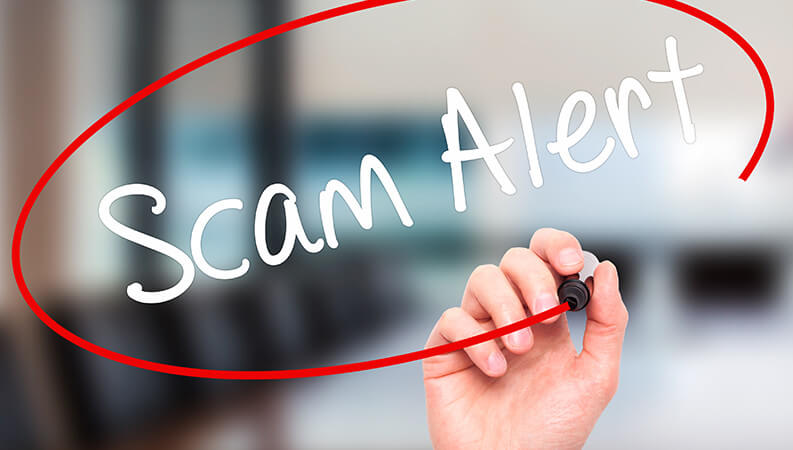Scammers rarely rest, constantly looking for new ways to make a buck or two. Now that many consumers have done away with landlines in favor of cell phones, scammers have found businesses make the perfect target. Not only must they publish their phone numbers online, but when calls come in, they often have to answer them, even if they’re from an unknown number.
But even when they answer those calls, small business owners can fend off fraud by knowing the signs. Here are a few popular scams specifically targeted toward small businesses.
Directory Listing Scams
At one time, businesses relied heavily on the phone book for advertising. This was long before a consumer could simply enter a few words into a search engine and get a long list of results. Even today, some businesses are convinced they need directory listings to get the word out about what they’re doing and if it costs a few dollars, they’re willing to do it. Directory listing scammers either call and convince a business to pay for a listing in a bogus directory or send a bill for some nonexistent directory listing. The bill looks official and businesses often send it over to accounting without questioning it. Businesses should verify that a directory listing exists before paying for it.
Award Scams
Every small business wants to win awards. Adding the words “award-winning” to a company’s “About Me” page can boost its image. It also brings added exposure, since the award issuer will often promote the recipients of its award through its own channels. So it’s understandable that a call announcing that a business has won an award could prompt even a seasoned professional to give the caller the benefit of the doubt. These vanity scams require a business to pay for some cost associated with receiving the award, even if it’s serious. Businesses should carefully research the issuing organization and ask questions before offering any payment.
Overpayment Scams
This scam can take various forms, but the underlying theme is that someone overpays for a product or service, then asks for a refund for the excess. Only after the business has paid does it realize that the credit card the customer provided with the order was fraudulent. Traditionally, customers have asked for the funds to be wired, which makes it more difficult to trace the recipient. Businesses should be aware that credit cards and checks can be fakes and should always take any efforts possible to verify payment methods with a payer’s bank. Additionally, they should get contact information for paying customers and verify that information before refunding any money.
Valuation Scams
Many small businesses hope for a phone call offering to buy their business. They likely envision that call as coming from a big corporation like Google or Facebook. When criminals launch this scam, they call with an offer to pair a business with interested buyers. They then say they’ll need an upfront payment to process the valuation. Once money has been forwarded, the business never hears from the person again. Businesses should always treat calls like this with skepticism and never send money. If someone wants to buy a business, that person will pay the business rather than asking money for some mystical “processing fee.”
Businesses of all sizes can fall prey to scams, but small businesses are especially vulnerable. By being aware of the various fraud types that exist, business owners can protect themselves. In general, leaders should pay close attention to their instincts and realize that if something seems too good to be true, it likely is. With so much information available on the Internet, business owners can often research any opportunity and learn the truth before falling victim.

Ready to elevate your B2B payments?
Whether you are automating for the first time, ready to refresh your existing technology, or looking for ways to complete the ‘last mile’ of automation, Edenred Pay can help. Let’s chat about your needs.







